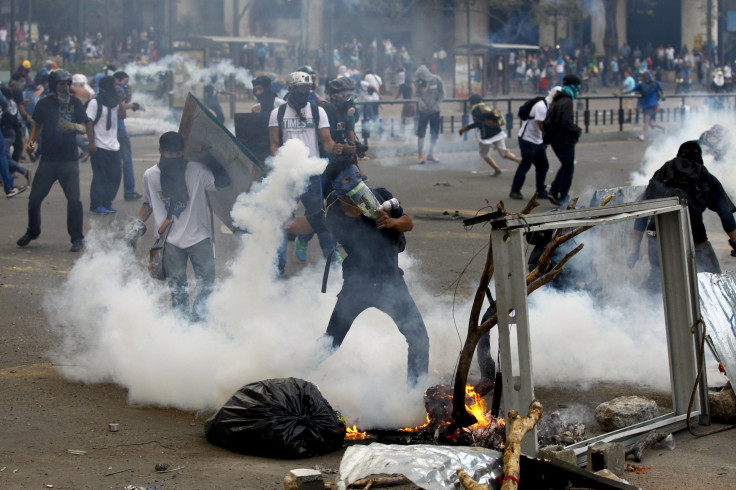
The Senate Foreign Relations Committee passed on Tuesday a resolution calling for sanctions against Venezuelan officials responsible for violence against protestors who have taken in the streets in cities across Venezuela in the past month and a half to voice their discontent with crime, a deteriorating economy, and previous acts of violence against student opposition demonstrators. The Latin American Herald Tribune reported that all 18 members of the committee voted to bring the resolution to the Senate floor for a full vote.
The resolution reaffirms US support for demonstrators’ right to peacefully protest and urges President Obama to “immediately impose targeted sanctions, including visa bans and asset freezes, against individuals planning, facilitating, or perpetrating gross human rights violations against peaceful demonstrators, journalists, and other members of civil society in Venezuela”. It also calls on the Venezuelan government to disarm and dismantle “colectivos” – grassroots government supporters who are suspected to be behind many of the shooting deaths of opposition protestors. Its sponsors, Democratic Senator (and FRC chairman) Bob Menendez of New Jersey and Republican Senator Marco Rubio of Florida, are both Cuban-Americans.
Rubio in particular has repeatedly called for US action on the issue. At the committee hearing on Tuesday, he said, “When I first got to the Senate, I used to see all these resolutions and say, ‘Well, this is just paper. Who does this matter to?’ This matters. They pay attention to this. I did an interview on CNN [en Español] a few weeks ago, and I have heard repeatedly from students in Venezuela who saw the interview and were uplifted by it.” But questions remain on the details of which officials sanctions would target and what information the decision would be based upon.
El Universal reports that Secretary of State John Kerry said during a Wednesday hearing before a House appropriations committee that the United States reserved the right to impose sanctions, but added that he was confident other Latin American and Caribbean nations would help encourage dialogue between protestors and the government. "We are prepared, if necessary, to invoke the Democratic Charter of the Organization of American States (OAS)” he said in reference to a charter which calls for American nations to “promote and consolidate representative democracy”. He said the US could also “get involved in various ways, through sanctions or otherwise, but the economy there is already quite fragile.
© 2025 Latin Times. All rights reserved. Do not reproduce without permission.





